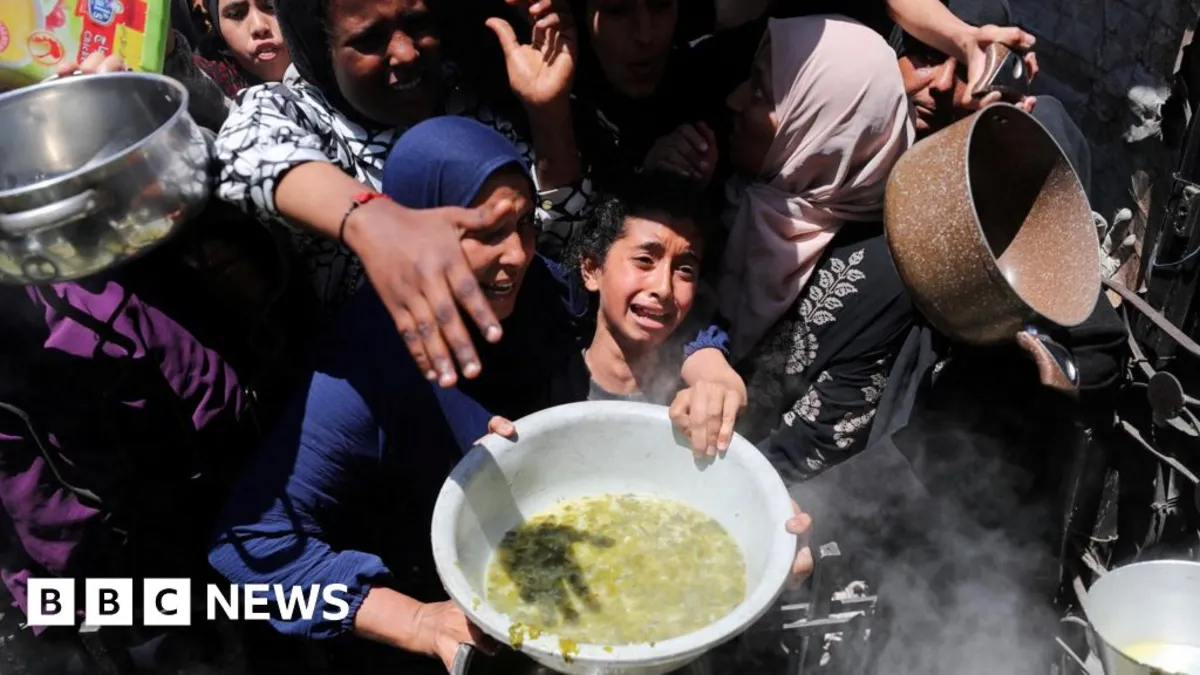
The United States has announced a new initiative aimed at delivering humanitarian aid to Palestinians in Gaza through private companies, as Israel's blockade extends into its third month. US Ambassador to Israel, Mike Huckabee, highlighted that distribution centers, secured by security contractors, will initially provide food and essential supplies to over a million people. This effort seeks to prevent Hamas from misappropriating aid, although Huckabee clarified that Israeli forces would not be involved in the actual delivery of aid, but would secure the perimeters of these centers.
As details of this controversial plan emerged, UN agencies reiterated their refusal to collaborate, citing concerns that it weaponizes humanitarian aid. Jens Laerke, spokesperson for the UN's Office for the Coordination of Humanitarian Affairs (OCHA), stated, "We will not participate in efforts that are in line with our principles." He emphasized the importance of adhering to humanitarian principles, noting that there is no justification for implementing a system that contradicts the essence of humanitarian work.
Since early March, Israel has halted all supplies entering Gaza, including food, medicine, and fuel, precipitating a severe humanitarian crisis for its 2.1 million residents. OCHA reported that a third of Gaza's community kitchens, vital lifelines for many, have recently closed due to shortages. Notably, the last two field kitchens operated by World Central Kitchen, a US-based charity, ceased operations after running out of ingredients while providing 133,000 meals daily.
Additionally, the prices of essential commodities have surged dramatically. For instance, a 25kg (55lb) bag of flour now costs $415 (£313) in Gaza City, marking a staggering 30-fold increase since late February, as reported by OCHA.
During a press briefing in Jerusalem, Huckabee conveyed that President Donald Trump views aid for Gaza as an urgent priority. The US administration is committed to expediting humanitarian assistance to the beleaguered population, amidst accusations from Israel and the US that Hamas diverts aid intended for those in need. Huckabee remarked, "Previous actions have often been met with Hamas stealing the food that was intended for hungry people."
In contrast, the UN and other humanitarian organizations assert that with robust supervisory mechanisms in place, incidents of looting have significantly declined when aid flows into Gaza. The World Health Organization confirmed that, during the current conflict, none of its medical supplies have been looted.
The Trump administration is working to establish momentum for the new aid initiative, particularly ahead of the President's upcoming trip to wealthy Arab Gulf nations, which may assist in funding. A new entity, the Gaza Humanitarian Foundation (GHF), has reportedly been created to oversee aid distribution, ensuring it operates independently of Israeli military control. Huckabee reassured that while Israeli security would be involved, they would not participate in the actual distribution of food or the transportation of supplies into Gaza.
According to a 14-page document from GHF, which has been reviewed by the BBC, the foundation aims to set up four distribution sites to provide food, water, and hygiene kits for 1.2 million people initially—less than 60% of Gaza's population. The project aspires to eventually assist all residents of Gaza, promising compliance with humanitarian principles of humanity, neutrality, impartiality, and independence.
Details regarding the operational mechanisms of this aid initiative remain vague. The conflict in Gaza, which escalated following Hamas-led attacks on southern Israel on October 7, 2023, has led to substantial casualties, with Israel's military actions resulting in over 52,700 deaths, predominantly among women, children, and the elderly, according to the Hamas-run health ministry.
Recently, Israel's security cabinet approved a more aggressive military strategy against Hamas, which may entail forcibly displacing the population to the south and maintaining control over aid distribution. This decision has drawn widespread international condemnation, with many allies urging Israel to comply with international law regarding unrestricted humanitarian aid.
UK Minister for the Middle East, Hamish Falconer, expressed grave concerns in Parliament regarding Israel's announcements, warning that they might lead to a perilous escalation in the ongoing conflict. He demanded urgent clarification from the Israeli government regarding their intentions and stressed the importance of adhering to humanitarian principles in all conflicts globally.
This week, US Special Envoy for the Middle East, Steve Witkoff, briefed the UN Security Council about the new aid distribution plan. Meanwhile, Israeli media reported that distribution hubs are being established in Rafah, southern Gaza, intended to be free of any Hamas presence. Reports suggest that only security-screened representatives from Gazan families will be allowed to collect supplies, and they must do so on foot.
Israel estimates that approximately 70kg (154lb) of aid would need to be delivered to each family weekly. The Israeli military plans to maintain a presence outside these hubs, enabling aid workers to distribute food without direct military involvement. However, significant questions regarding the plan's viability remain, especially as the current UN system utilizes around 400 aid distribution points.
The ongoing humanitarian crisis in Gaza raises urgent concerns about the potential for mass starvation. The UN has reported that 90% of Gaza's population has already been displaced during the conflict. Critically, aid officials have determined that the proposed system does not align with the minimum standards for principled humanitarian support.
Analysts warn that agreeing to the military's demands in this conflict could undermine the UN's perceived neutrality and set a troubling precedent for future humanitarian operations worldwide. The UN and various aid organizations have stated that they currently possess substantial supplies ready for distribution, pending Israeli approval for entry into Gaza.
In Jabalia, northern Gaza, residents voiced their despair as they awaited food handouts. Palestinian families described chaotic scenes at community kitchens, with many expressing frustration over the dire circumstances. One resident, Umm Ahmed, lamented, "Every day I come here and wait with my cooking pot to feed my children. We have been suffering for two months. Open the borders so we can eat properly." Another individual, Mohammed, highlighted the dire situation, stating, "My wife is pregnant and sick, and I’m unable to get her to the hospital."